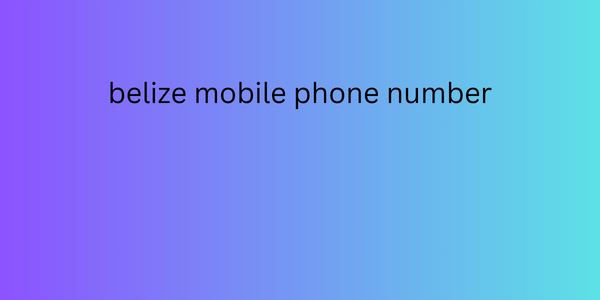Electronic Health Records (EHR) vs. Paper Records: Why Change Matters in 2024
Posted: Thu Dec 05, 2024 8:02 am
Introduction to health records
The importance of accurate and accessible health records in medical practice cannot be overstated. Traditionally, healthcare facilities have relied on paper records to record patient information, medical histories, and medical records. While this method has served them well for many years, the advent of electronic solutions has paved the way for more efficient, accurate, and accessible patient information management systems – electronic health records (EHRs). This digital transformation aims not only to simplify data management but also to improve the overall quality of patient care.
Health records, which are systematic records of an individual’s medical history and care at all times, are essential in helping health care providers make informed decisions about a patient’s care. They cover everything from diagnoses and treatments to prescription medications and past medical events. It is important to ensure that these records are complete, accurate, and accessible to authorized health care professionals so that they can provide the highest standards of care.
As we look to 2024, the transition from paper-based to electronic health records becomes increasingly important. This need for digital transformation is underscored by the increasing complexity of healthcare systems, the need for real-time access to information, and the rapid evolution ofbelize mobile phone number medical technology. EHRs offer numerous advantages over paper-based systems, such as increased security, scalability, and efficiency, which are critical to meeting the needs of modern healthcare.
Furthermore, the COVID-19 pandemic has highlighted the importance of robust digital healthcare systems, exposing the limitations of paper-based records in managing large volumes of patient data and coordinating multi-faceted care across healthcare providers. The transition to EHRs is not only a change in approach but also an evolution in the way patients are delivered, with technology playing a key role in reshaping the healthcare landscape.

Inefficiency of paper records
In today’s technologically advanced era, healthcare systems that rely on traditional paper records are increasingly recognizing the limitations of this outdated method. Although once popular due to its simplicity, paper records are flawed in several ways that are critical to delivering effective healthcare today. Here are some more details about the diminishing effectiveness of paper health records:
Lack of access
One of the main disadvantages of paper records is their physical nature, which severely limits access. Healthcare providers often face challenges locating patient information stored in physical files, causing delays that can negatively impact patient outcomes. The required access typically requires the healthcare professional to be physically present at the location where the records are stored, which is not possible in emergencies or teleconsultations.
Risk of damage and loss
Paper documents are subject to damage in a variety of ways, such as fire, flood, and insects, and are at high risk of being lost or misplaced. This risk threatens the integrity of critical patient data and can result in disruptions to healthcare services. When paper documents are damaged or lost, they are often irrecoverable, leaving a large gap in patient records.
The importance of accurate and accessible health records in medical practice cannot be overstated. Traditionally, healthcare facilities have relied on paper records to record patient information, medical histories, and medical records. While this method has served them well for many years, the advent of electronic solutions has paved the way for more efficient, accurate, and accessible patient information management systems – electronic health records (EHRs). This digital transformation aims not only to simplify data management but also to improve the overall quality of patient care.
Health records, which are systematic records of an individual’s medical history and care at all times, are essential in helping health care providers make informed decisions about a patient’s care. They cover everything from diagnoses and treatments to prescription medications and past medical events. It is important to ensure that these records are complete, accurate, and accessible to authorized health care professionals so that they can provide the highest standards of care.
As we look to 2024, the transition from paper-based to electronic health records becomes increasingly important. This need for digital transformation is underscored by the increasing complexity of healthcare systems, the need for real-time access to information, and the rapid evolution ofbelize mobile phone number medical technology. EHRs offer numerous advantages over paper-based systems, such as increased security, scalability, and efficiency, which are critical to meeting the needs of modern healthcare.
Furthermore, the COVID-19 pandemic has highlighted the importance of robust digital healthcare systems, exposing the limitations of paper-based records in managing large volumes of patient data and coordinating multi-faceted care across healthcare providers. The transition to EHRs is not only a change in approach but also an evolution in the way patients are delivered, with technology playing a key role in reshaping the healthcare landscape.

Inefficiency of paper records
In today’s technologically advanced era, healthcare systems that rely on traditional paper records are increasingly recognizing the limitations of this outdated method. Although once popular due to its simplicity, paper records are flawed in several ways that are critical to delivering effective healthcare today. Here are some more details about the diminishing effectiveness of paper health records:
Lack of access
One of the main disadvantages of paper records is their physical nature, which severely limits access. Healthcare providers often face challenges locating patient information stored in physical files, causing delays that can negatively impact patient outcomes. The required access typically requires the healthcare professional to be physically present at the location where the records are stored, which is not possible in emergencies or teleconsultations.
Risk of damage and loss
Paper documents are subject to damage in a variety of ways, such as fire, flood, and insects, and are at high risk of being lost or misplaced. This risk threatens the integrity of critical patient data and can result in disruptions to healthcare services. When paper documents are damaged or lost, they are often irrecoverable, leaving a large gap in patient records.